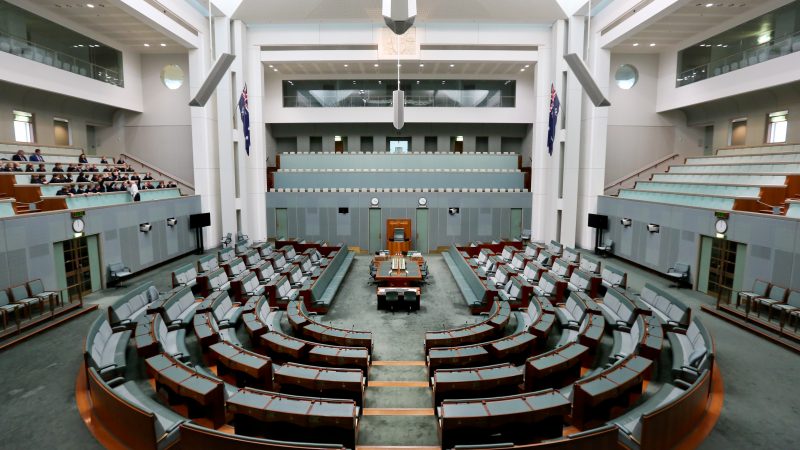
Just imagine an election where the left tries to remove an unpopular, right-wing, culture-baiting Prime Minister. Where the previous election in 2019 saw predictions of a Labor victory – but instead resulted in a devastating defeat. A result that saw the party experience major losses in its former heartlands. A result that generated a huge amount of soul searching as the movement questioned how it could possibly come back from such a loss. Stop me if it all sounds a bit too familiar.
The good news is that the Australian Labor Party (ALP) managed to do just that. Against the global tide, Anthony Albanese has formed the first Labor government in Australia since 2013. It was amazing to play a part in delivering such a campaign and an extraordinary win, which defied early polls and relentless Murdoch punditry.
Labor’s campaign director Paul Erickson led the very definition of a well-oiled operation, driven by polling and research that listened to all of what voters were saying, not just the bits that suited. There are plenty of lessons to share as the UK Labour Party prepares for the next general election. Here are our top five takeaways:
It’s (still) the economy, stupid. It started with bravery on the economy. Cost of living was – and remains – a huge issue. Labor was bold in this space, offering something beyond the low-wage growth, high-bill economy that has dogged the lives of hard-working people under successive coalition governments. Economic credibility is so often seen as the weakness of parties on the left, and Scott Morrison’s Liberal Party put such attacks at the core of its messaging for this election. But Labor was able to own the issue, highlighting coalition failures on the handling of the economy by framing it around the cost-of-living crisis.
Twitter isn’t the real world. Albanese and the ALP were relentlessly focused on bread-and-butter issues that voters cared about and wanted leadership on – aged care, childcare and Medicare. As the campaign gathered momentum, the Liberal Party desperately tried to distract with attempts at a so-called ‘culture war’ – trying to create division within Labor with the help of an ever-hostile media. Labor’s mainstream positioning – in tune with the overwhelming majority of Aussies – stopped the coalition attacks dead, leaving them to rumble on late-night talk shows and fringe Twitter. Morrison was left fighting a culture war with his own candidates, while Labor spoke about the issues that mattered.
Messaging matters. Labor’s message discipline ensured that the election was a referendum on Morrison’s leadership – a weak Prime Minister who failed to lead in the face of devastating forest fires, the pandemic and economic strife. The ALP took his signature “It’s not my job” phrase and hammered away at the latent public sentiment that this was someone who was simply unsuitable to lead the country. Every issue in the campaign came back to one question: ‘Do you really want three more years of Scott Morrison?’ Morrison is not Boris Johnson, but his government was scandal-hit and his response to major challenges always fell short – something that definitely rings true for the UK.
A truly cross-platform campaign. This was a thoroughly modern election. Elections in Australia have some fundamental differences, most notably compulsory, preferential voting and TV advertising. The ALP ran a mercilessly disciplined digital, media and field operation offering a better future with Labor set against more of the same with Morrison. We can do the same in the UK if we are able to replicate that level of discipline. The online campaigning was innovative, and the use of TikTok – relatively new in political campaigning – showed how attack messages were reinforced with funny, engaging content that smashed the Liberals in terms of reach.
Target practice. Finally, the campaign was exceptionally well-targeted. The list of target seats was established early and based on evidence and polling, and candidates were also selected early. There was no variance for hunches or for vocal candidates – this was a grown-up strategy based on the data.
Albanese was himself an indisputable asset, a momentary lapse on the unemployment rate in week one completely forgotten by the campaign’s end. His love of Australia and his plan to make it a better place to live shone through. Crucially, his fundamental decency set him apart from his main opponent.
As well as being a success for Labor, the election saw a spike in support for other anti-government parties and groupings, a challenge which is right in front of us in the UK. Voters fed up with the Liberals also went to other parties – Greens to the left and organised Independents on the right, motivated by key issues such as climate change or corruption. This is a resonant comparison and reflects what we saw in our local elections – we must enthuse people or others will.
Being part of a Labor victory is an incredible feeling, and we have the opportunity to feel the same way in the UK at the next general election. We must learn the lessons from Australia if we are to do so: a well-targeted campaign, with total message discipline focused on the issues that have an everyday impact, whilst offering hope for the future. We can do this and we must.




More from LabourList
Antonia Romeo appointed to lead civil service as new Cabinet Secretary
‘If Labour is serious about upskilling Britain, it must mobilise local businesses’
Stella Tsantekidou column: ‘What are we to make of the Labour Together scandal?’